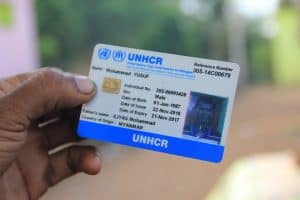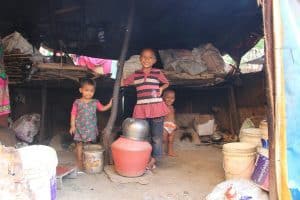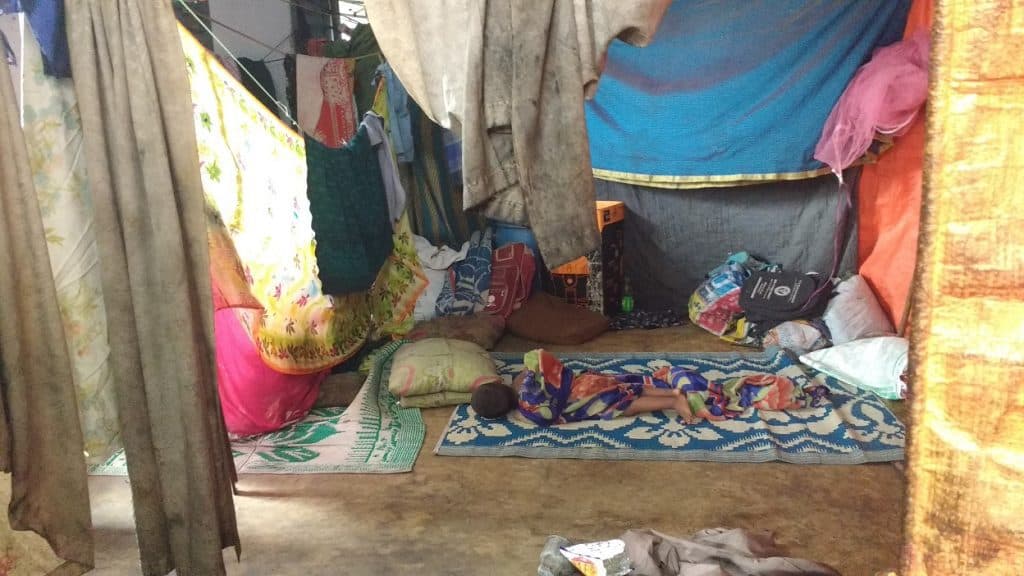Five years ago, Mohammad Yusuf, a man in his late 20s belonging to the Rohingya Muslim community in Myanmar, did not have the slightest idea about the existence of a country called India, let alone Chennai as a city. Life, however, had other plans and five years on, today, he has made Chennai his new home as a refugee and loves the city for its hospitality.
Nestled in the borders of the city, along Kelambakkam, the Muslim minority community of the Rohingyas have settled down in camps and live, almost indistinguishable, with the locals.
As I enter their camp, I see them engaged in their household chores and the children playing around amidst the swarms of flies and garbage dumped just outside their shelter. They run up to me as they see me coming in and start asking questions.
“Tamil maalum nahi (I do not know Tamil),” an old man in his mid-60s tells me. As I try to talk to him in broken Hindi, the Rohingya kids come to my aid and help me communicate.
A stormy past
Mohammad Yusuf narrates the story of why and how the community members landed in Chennai as victims of ethnic cleansing. “We were suppressed and oppressed back in Burma (Myanmar). The military had begun to target our community, we had no choice but to run for our lives and decided to flee from our homeland to save ourselves from the cruelty,” he remembers agonizingly. In Chennai, Yusuf works as a ragpicker and cleans the local shops for a living.
The United Nations describes the Rohingyas as one of the most persecuted minority communities, struggling for rights as citizens of Myanmar by the government. Ethnically, the Rohingyas are the descendants of the Bengalis of Bangladesh and large numbers of the community live in Rakhine, Myanmar which lies close to Bangladesh. They have seen continual strife with the native Buddhist population but the riots reached a pinnacle when a Rakhine Buddhist was sexually assaulted in 2012. This led to a communal clash between Buddhists and the minority community, which is when hordes of Rohingyas started migrating to other countries in search of peace and security.
Yusuf says, “When we wanted to flee, we came across an agent who portrayed India as a prosperous nation and hence we decided to come here. I never knew there was a country called India until we were informed thus by the agents.
The passage to India was not easy as they had to shell out 100,000 per person in their currency, but they were eager to escape the violence and reached Bangladesh by the sea route in just 45 minutes. “From there we came to Calcutta, after which the agent made us travel by train through various places over a period of about 15 days. We didn’t know we were coming to Chennai until we reached here,” Yusuf says.
Another resident of the camp is Dil Mohammed, whose first wife and two sons did not possess the pass that was officially issued by the Myanmar government when they crossed the border. They were thus imprisoned by the Calcutta police. I managed to bring my sons out since they were too young. But we are still struggling to pay the man under whom we work and I do not know how I’m going to pay the cops and bring my wife back,” he says, his face clouded by sadness.
Life in Chennai
93 refugees belonging to the Rohingya community now live at the Kelambakkam camp, provided with basic necessities by the state government. The 47 kids belonging to the 19 families here have access to education and study at Kelambakkam government school.
Even as Yusuf talks about their past, he takes me around the place and shows me how they live. Entering the circular building, I see two women busy working with a sewing machine.
“We don’t have cement walls in here,” he says with a smile and takes me in. As I go in further, I see what he means. Faded and half-torn sarees hang everywhere replacing walls, providing makeshift boundaries. Moving further, he shows me his room, enclosed by sarees on all four sides. This ‘room’, barely 150-200 sq km in area, accommodates seven people — two adults and five children. Household items lie arranged in all corners. To my left, I see their clothes, vessels on the opposite side, small burners on my right and in the centre, his wife sits cutting meat.
“This is how the rest of the rooms are. The men sleep outside while the ladies and kids sleep inside our rooms,” he adds.
Despite the obvious shortcomings, the members are not complaining. “We are unencumbered here in many aspects. We are able to celebrate Bakrid and Ramzan well, as we have a mosque close by here. When I was in Burma, we had to inform the government and get a permit letter. Moreover, our neighbours and cops are also supportive,” says sexagenarian Zaffar Hussain, with contentment.
“Two women from our community teach us how to stitch our clothes using three machines, which was donated to the camp by someone a few months back,” says one lady. “Even during summers, the water does not stop flowing and we are thankful for that,” she adds as she handpumps the water and carries it to her kitchen.

Refugee card provided by the United Nations High Commissioner for Refugees (UNHCR). Pic: Bhavani Prabhakar
In addition, the UNHCR, the UN Refugee Agency, has helped them get a refugee card and Aadhar card and an official from the Agency frequents the camp to check and enquire after their needs. Yusuf says, “The refugee card application could be easily rejected, but in our case, we did not face any hurdles and the Chennai UNHCR officials helped us throughout in getting Aadhar card and Refugee card.
Expressing gratitude towards the state government, one camp resident Hussain says, “We are grateful to the state government for providing us with free power supply, water, shelter and above all, freedom. People from the electricity board have visited the camp thrice so far to note down the readings. But we do not have to pay. We were moved to safe havens during the time of floods and cyclone and our place was also renovated. Our only requirement now is a larger place, as there are 93 of us now.”
Livelihoods
Back in their homeland, the Rohingyas worked as farmers and have now been reduced to doing menial jobs to keep the fire burning. “We were charged a hefty amount to reach India. But the agent cheated us and sold us to the rag dealer, under whom we work. We were told that we will be freed fully only if we pay him some amount. We have already paid him Rs 18,000 and he gives us Rs 500 every five days or so, which is not even enough to buy household items,” rues Yusuf.
The shop owners in the vicinity are of the opinion that they are self-sufficient, calm and do not create any ruckus. Suresh, a resident of the locality says, “Under the recommendation of a person from the local Mosque, they had initially been residing in a community hall and were later shifted since they had some fights within the community. Moreover, the community hall was used for several other purposes and since their lifestyle was different, people were not willing to use it. The refugees were thus moved to this circular building.”
Lost connections
It has been five years since the Rohingyas made Chennai their home and they are still struggling to keep in touch with their relatives who are stuck in the conflict zone. The Myanmarese government hits back with imprisonment and penalty for possessing mobiles and telephones.
“After settling here, I tried to talk to my sister back in Burma. I spoke to her on the phone and she was imprisoned for three years, fined a sum of Rs 15,000 and her cell phone was seized. We do not even have money to send or to bring them here. The last time I spoke to my mother she indicated that the situation is still not safe and she has not opened her eatery shop in a long time. Not a day passes by without me thinking about my parents and sister,” says Yusuf.
Access to education
Unlike in Myanmar, the Rohingya kids have free access to education here and enjoy going to school after their bitter experiences in their native country.
“Engineer! Engineer! Engineer,” the kids scream with vibrant energy when I ask them what their ambition is.
But there are some who wish to go back to their country and study, “I studied in the government school only up to class 7, I had to discontinue because boys of higher classes made fun of me as I’m from another country. If I go back to Burma, I’ll keep studying, we do not have an age bar to study in Burma,” says a 17-year-old girl.
The clock strikes 6, elders of the community rise to offer their daily prayers and the kids huddle, sit next to them and join the mass.
Before bidding adieu I ask them if they wish to go back to their country. The response is unanimous: Certainly, only if peace is restored.

